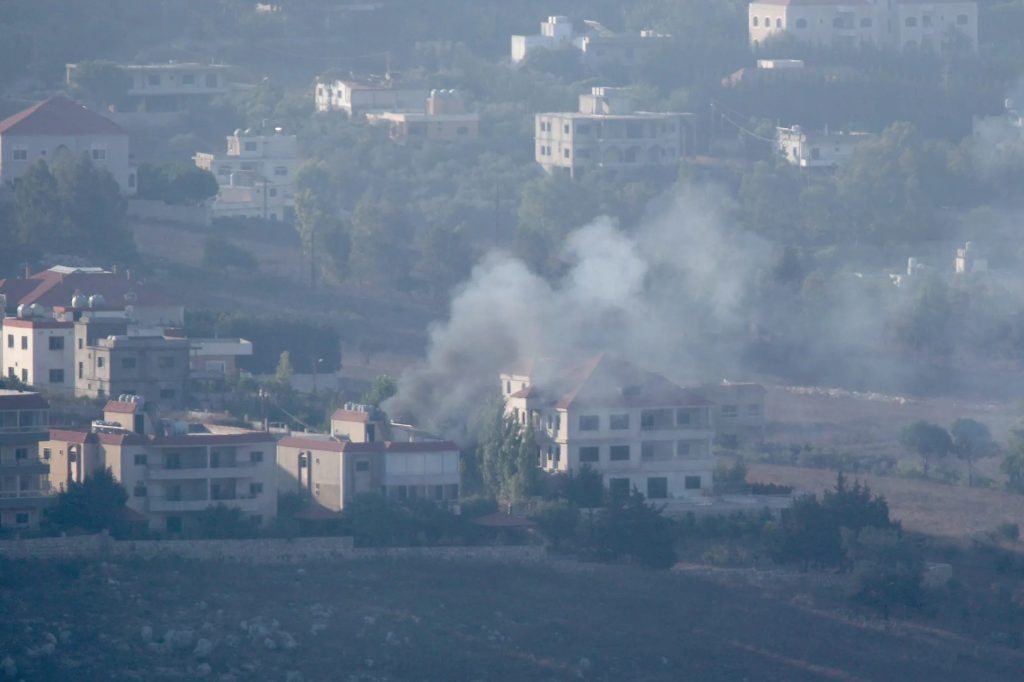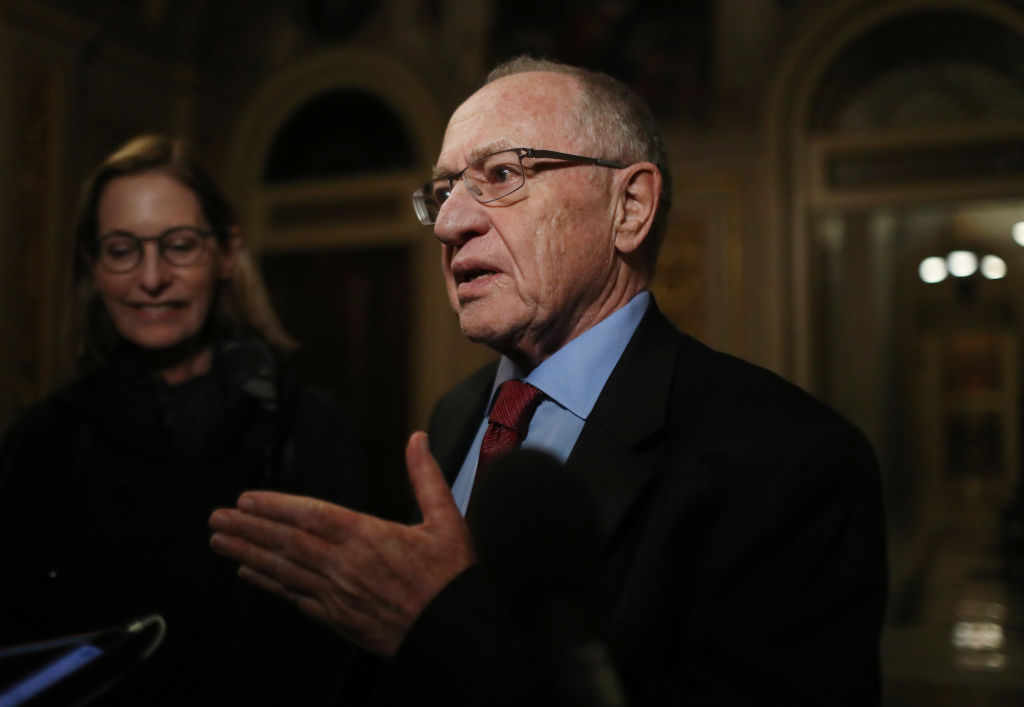As the dust literally settles across southern Lebanon in the aftermath of the Israeli air strikes, we are starting to see an answer to the question of whether this will be the escalation that leads to all-out war.
Hezbollah has declared an end to the first phase of revenge for Israel’s assassination of its most senior military commander Fouad Shukur, who masterminded the killing of 241 marines and fifty-eight French soldiers in 1983, in Beirut last month. Its planned attack on the headquarters of Mossad and Unit 8200, Israel’s fabled military intelligence directorate, has been averted. Casualties appear to have been very limited. Jerusalem’s spy chiefs have flown to Cairo to continue the hostage negotiations, which have not been derailed.
For all Hezbollah’s insistence to the contrary, this round of violence looks like another major Israeli win. Hundreds of Hezbollah rocket launchers equipped with thousands of silos were destroyed in the dawn raid by 100 Israeli Air Force jets on forty areas of southern Lebanon, the IDF confirmed. Not only did this bold move stop the attack in its tracks, it likely removed a future threat to some parts of Israel’s north.
In the aftermath of the attacks, Lebanese Christian opposition leader Samy Gemayel called for Hezbollah to be disarmed and control of the south of the country be handed back to the Lebanese army. This would be in line with the 2004’s UN Resolution 1559, which urged the Lebanese government to assert sovereignty over the entirety of its territory.
;768:[300×250,336×280,320×100];0:[300×250,320×100,320×50]”]“No Lebanese person will believe deceitful speeches and claims of imaginary victories,” he tweeted, in an unmistakable sideswipe at Sunday’s bombastic speech by Hezbollah leader Hassan Nasrallah.
A satisfying picture is emerging. Hezbollah has been chastened and degraded, internecine political tension is rising in Lebanon and the Israeli deterrent has been further restored. This piece of brinkmanship by Jerusalem was painstakingly calibrated to give Hezbollah a slap across the chops without triggering a war. So far, it looks to have achieved this objective.
This has been a period of extreme tension in the region. Ever since Mossad’s audacious assassination of Hamas leader Ismail Haniyeh in Tehran last month, Iran has been vowing revenge. The Ayatollah has tried to make a virtue of the fact that no such revenge has come so far, claiming that keeping Jerusalem in a state of anticipation is part of his strategy. He has also linked the expected retaliation to the Gaza ceasefire talks, suggesting that he would call off his dogs if a deal was secured.
But the rhetoric from the Islamic Republic belies its own insecurity. After the stunning killings of Haniyeh, the elusive Mohammed Deif and Fouad Shukur, Israel’s military superiority is in no doubt. Moreover, Jerusalem’s newfound willingness to call Tehran’s bluff and enforce an uncompromising deterrent is now unmistakable. Although the Ayatollah emphasizes the anguished waiting game that he has imposed upon Israelis, his own people are going through even greater psychological struggles.
In April, Iran’s night of 300 projectiles led to only one rocket getting through. In response, Israel fired just two missiles, both of which hit home, destroying a sensitive radar station protecting the talismanic nuclear enrichment site at Natanz. According to intelligence sources, the Iranian computation could be seen playing out in real time. Initially, they were confused: two missiles? Is that it? Then the chatter showed the message sinking in. Bloody hell, they thought to themselves. Two missiles, two hits. Imagine if the Israelis had launched several hundred.
;768:[300×250,336×280,320×100];0:[300×250,320×100,320×50]”]In this way, Jerusalem is successfully weaving a tapestry of deterrent across the skies of Lebanon and Tehran, using a succession of pinpoint strikes without causing mass casualties. The theater has been bolstered by additional American assets, underpinning Israeli force with the suggestion of overwhelming depth. The eyes of the Islamic Republic are thus flitting between the Israeli military machine, which is picking off target after target, and the looming American election, which carries with it the threat of the Donald.
In her acceptance speech last week, Kamala Harris vowed to “never hesitate to take whatever action is necessary to defend our forces and our interests against Iran and Iran-backed terrorists.” Whether this would become a reality if she wins is anyone’s guess. But if Trump emerges victorious in November, there is a track record from which Iran can draw conclusions.
Last time the unpredictable leader was in power, he withdrew the United States from the nuclear agreement and imposed a policy of “maximum pressure” that bled the Islamic regime dry. He also authorized the killing of Qasem Soleimani, Iran’s foremost military hero, which shook the regime to the core. It had never imagined that the White House would take such a belligerent step and was unable to mount a meaningful response.
Tehran, therefore, finds itself increasingly painted into a corner by the strokes of its own saber-rattling. In a straight fight, it would lose. The Ayatollah’s strategy for destroying the Jewish state is an incremental one, which he does not anticipate bearing fruit until 2040. In the meantime, however, he faces an increasingly steely Israeli foe and growing discontent at home, with hundreds of protests tying up his security forces and threatening his brittle hold on power.
It is hard to be certain of anything in the Middle East, particularly in such turbulent times as these. The real danger is that Iran will make a dash for nuclearization — which, according to some estimates, stands just months or even weeks away — before Trump potentially returns to office. The regime is increasingly aligned with Moscow and Beijing, making the global picture more volatile. And it is true that Israel’s strategy for dealing with Iran has been based on containment and response, rather than an approach designed for total victory.
With the wind of Saturday night’s humiliation of Hezbollah in its sails, however, Jerusalem has moved further towards undisputed regional dominance. Today, Benjamin Netanyahu and his defense chiefs will be enjoying a tentative and qualified moment of satisfaction.
;768:[300×250,336×280,320×100];0:[300×250,320×100,320×50]”]This article was originally published on The Spectator’s UK website.

























